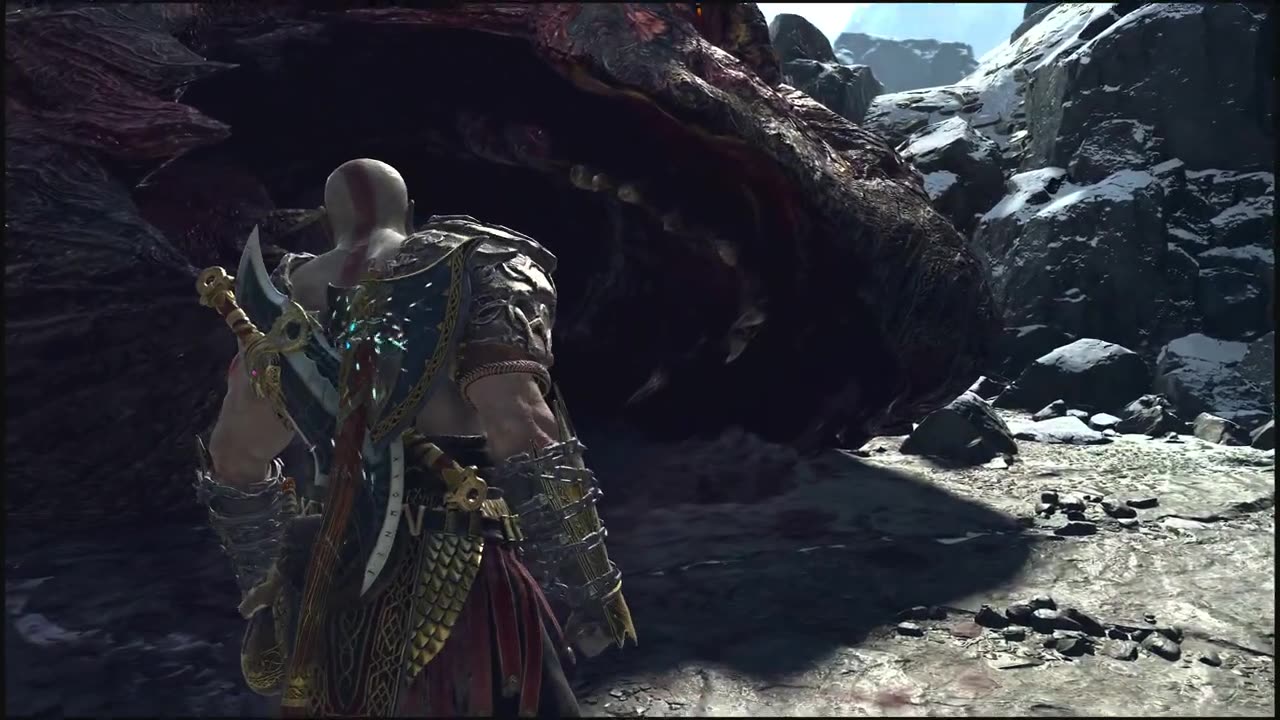Premium Only Content

God of War (2018) 4K Hraezlyr Dragon Boss Fight Gameplay
The Epic Journey of "God of War": A Deep Dive into the Legendary Video Game Series
The "God of War" video game series has long captivated gamers with its intense action, compelling storytelling, and breathtaking visuals. Since its debut, the franchise has evolved significantly, offering players an unforgettable journey through mythological realms.
The Origins of "God of War"
Released in 2005 by Santa Monica Studio and published by Sony Computer Entertainment, the first "God of War" game introduced players to Kratos, a Spartan warrior driven by vengeance against the gods of Olympus. The game’s innovative combat system, characterized by its fluid combo-based mechanics and quick-time events, coupled with its rich narrative, set a new standard for action-adventure games. Players were drawn into Kratos's tragic past and his relentless quest for retribution, making for a deeply immersive experience.
Evolution of Gameplay and Graphics
As the series progressed, each installment brought significant advancements in gameplay mechanics and graphical fidelity. The sequels, including "God of War II" (2007) and "God of War III" (2010), expanded on the original’s foundation, introducing new weapons, abilities, and even larger-than-life boss battles. The graphics evolved from impressive to downright stunning, with "God of War III" showcasing some of the most detailed and beautifully rendered visuals of its time.
The 2018 reboot, simply titled "God of War," marked a significant shift in the series. It introduced an over-the-shoulder camera perspective, a more strategic combat system, and a deeper emphasis on narrative and character development. Set in the realm of Norse mythology, this installment redefined the series once again, earning widespread acclaim for its innovation and emotional depth.
Exploring Mythological Realms
One of the most distinctive features of the "God of War" series is its deep roots in mythology. Initially drawing from Greek mythology, the series took players on a journey through a world filled with gods, titans, and mythical creatures. Each game was rich with lore, providing a unique twist on classical myths and legends.
The 2018 reboot transitioned to Norse mythology, introducing players to a new pantheon of gods and a fresh set of myths to explore. This shift not only expanded the series' narrative scope but also introduced new gameplay elements and environmental puzzles inspired by the Norse world.
Character Development and Storytelling
Kratos, the central character of "God of War," has undergone significant development throughout the series. Initially portrayed as a vengeful and ruthless warrior, Kratos’s character has evolved into a more complex and multifaceted individual. The 2018 game introduced his son, Atreus, adding layers of paternal responsibility and personal growth to Kratos’s story. This father-son dynamic brought a new emotional depth to the series, resonating deeply with players.
Critical Reception and Impact on Gaming
The "God of War" series has received critical acclaim for its storytelling, gameplay, and technical achievements. It has won numerous awards, including several Game of the Year accolades, and has had a profound impact on the video game industry. The franchise's success has influenced countless other games, setting benchmarks for action-adventure titles and narrative-driven experiences.
Future of the Franchise
With the success of recent installments, the future of "God of War" looks promising. The announcement of "God of War: Ragnarök," set to continue Kratos and Atreus's journey, has generated significant excitement among fans. As the series continues to explore new mythological realms and push the boundaries of storytelling and gameplay, it remains one of the most beloved and influential franchises in gaming.
-
 2:48
2:48
EliteGamer Odyssey
6 months agoEvolution of Mortal Kombat Games 1992-2023
291 -
 21:06
21:06
BlackDiamondGunsandGear
7 hours agoPSA Micro Dagger Self-Destructs During Shooting! What Happened…
21.5K7 -
 6:27:09
6:27:09
Right Side Broadcasting Network
5 days agoLIVE REPLAY: RSBN Pre-Inauguration Coverage: Day Three in Washington D.C. - 1/18/25
258K56 -
 25:09
25:09
MYLUNCHBREAK CHANNEL PAGE
13 hours agoOff Limits to the Public - Pt 2
56.9K46 -
 1:36:11
1:36:11
Tucker Carlson
1 day agoSean Davis: Trump Shooting Update, & the Real Reason Congress Refuses to Investigate
341K409 -
 5:13
5:13
Russell Brand
2 days agoHost GRILLS Pzizer CEO Over Vaccine Efficacy
132K250 -
 14:53
14:53
Stephen Gardner
8 hours ago🔥Alex Jones WARNS Trump not to DEFAULT on THIS!!
63.3K333 -
 31:54
31:54
The Why Files
5 days agoThe Quantum Apocalypse: All Your Secrets Revealed
119K60 -
 7:05:17
7:05:17
Sgt Wilky Plays
11 hours agoSaturday Hangout and Games
70.4K4 -
 8:23:23
8:23:23
DeadMan88
12 hours agoWGT Golf Road to Master
44K5